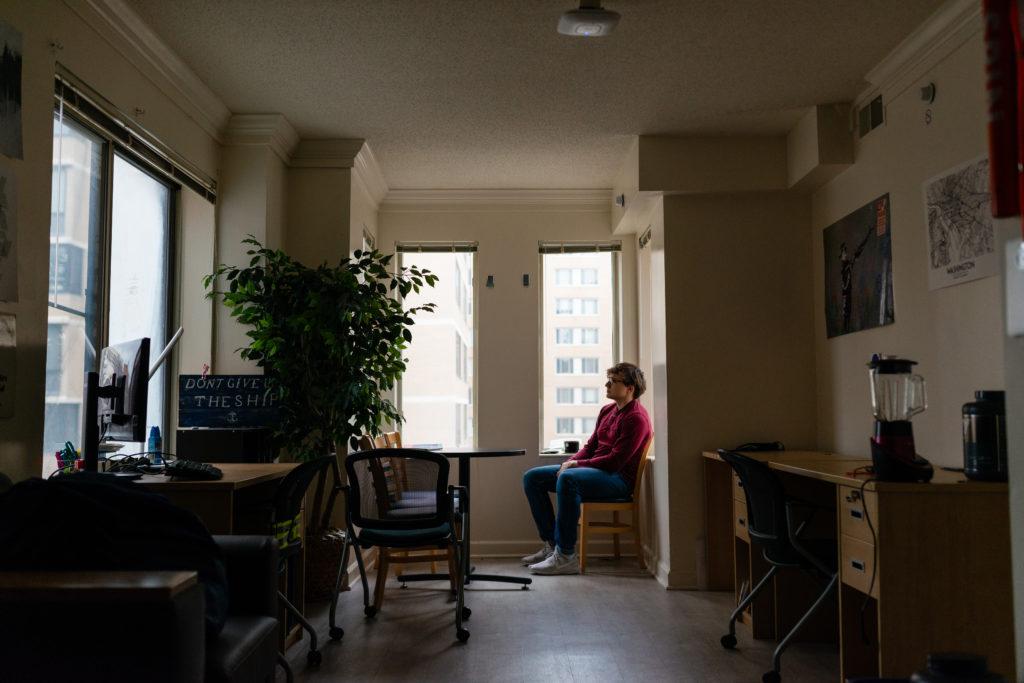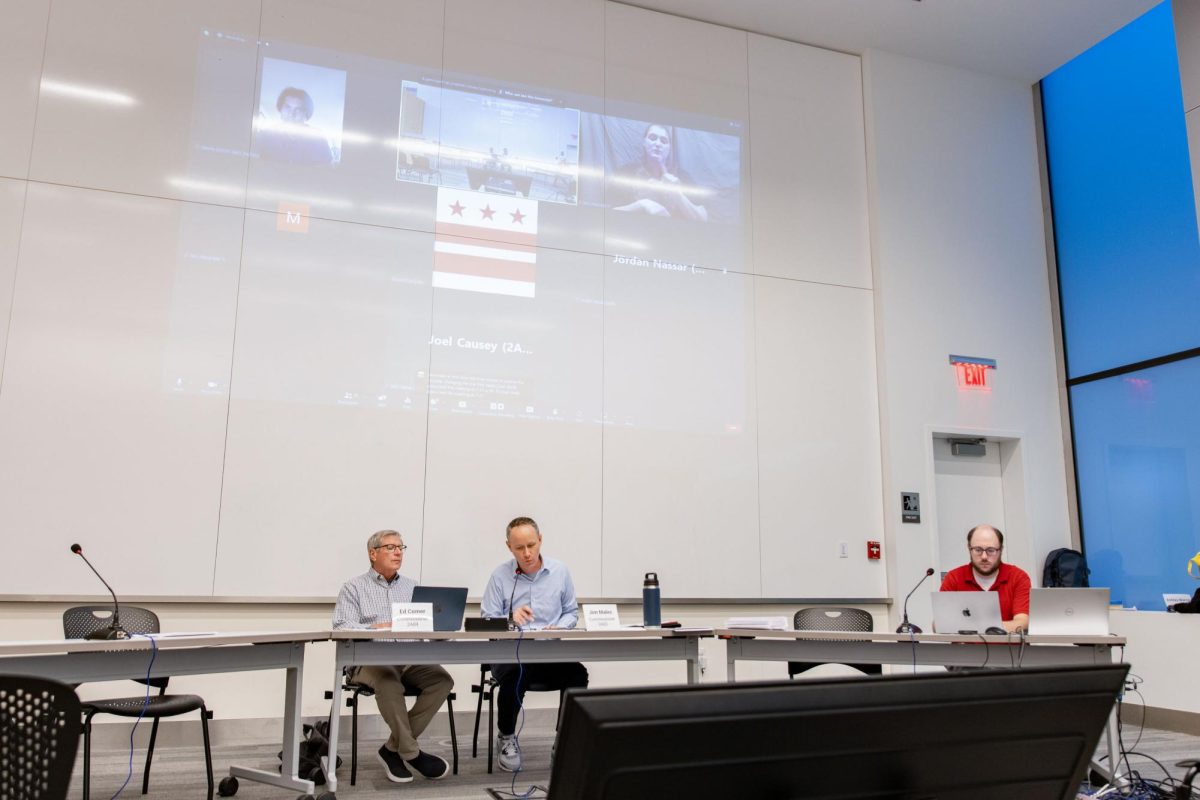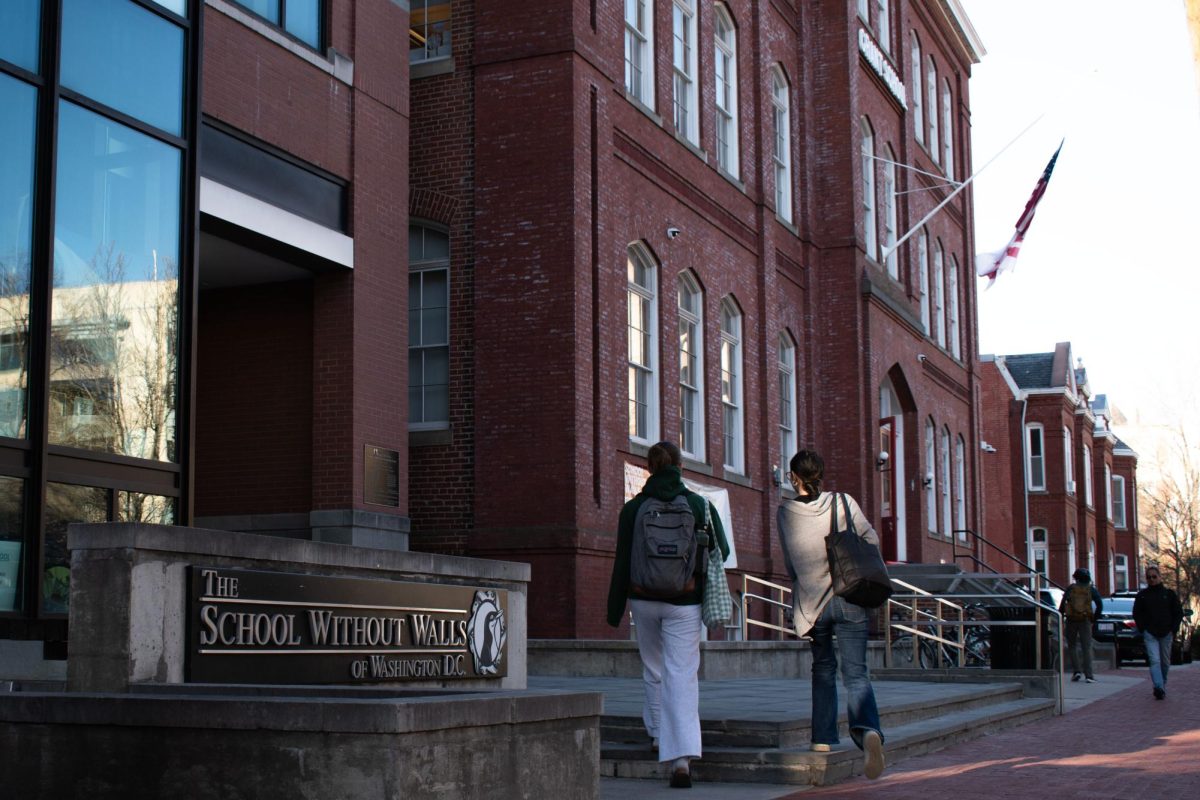A University dining partner is distributing emergency meal kits to students stranded on campus during the COVID-19 pandemic.
University spokeswoman Crystal Nosal said SAGE Dining Services – the University’s dining partner that caters dining services to the Mount Vernon Campus – has been delivering meal packages that students have ordered to residence hall rooms since March 23. She said the deliveries designed to feed recipients for a week benefited the few students left isolated on the Foggy Bottom Campus after the University made the switch to online classes in March.
“The emergency meal kits are intended to be secondary to the student’s food preparedness efforts in the event of any challenges to food access due to COVID-19 and mitigating concerns about daily caloric intake should there be short-term access issues for grocery items,” Nosal said in an email.
She said the kits include a mixture of non-perishable items like ramen noodles, macaroni and cheese, oatmeal, crackers, cookies, paper goods and utensils. She said the University sent students an email alerting them about the availability of the kits in late March after SAGE finished assembling them for distribution.
Nosal said students can order a kit for $98 through GWorld through an online form, where students leave their name, contact information, room number and GWID to register. She said deliveries are contact-free and often arrive at residence halls within 24 hours of the students’ orders.
The deliveries serve as one of the many campus-wide relief efforts aimed to assist vulnerable students, faculty and community members struck with the effects of the COVID-19 pandemic.
Neha Ahmed, a rising sophomore from Pakistan, said she received a meal kit for free when she moved into International House on April 5 after the University originally relocated her from Somers Hall on the Vern to One Washington Circle Hotel two weeks earlier. She said she had to stay on campus after flight cancellations and layovers thwarted her plans to return home.
“It wasn’t feasible to go back home, and even back home everything is in lockdown,” she said. “So I wouldn’t have been able to do anything or continue with my studies, so the best option was just to stay on campus.”
Ahmed said many GWorld vendors’ switch to pickup-only service complicated the GWorld payment system since all transactions changed from customary in-person interaction to mobile applications. She said she was able to utilize a new University option that allows students to transfer GWorld funds to a bank account so students can have an expanded list of non-GWorld food options in the District.
“It was a bit tricky at the beginning because I had a lot of money stuck in my GWorld and didn’t have a lot of money to spend on the dining options,” she said.
After receiving a box full of cereal, noodles, soup, tuna, peanut butter and snacks, Ahmed did not eat the majority of her meal kit and decided to donate most of the food items to a D.C. food pantry, she said. Ahmed said the kits were overpriced for students who had to pay for them and failed to include more substantial, filling meals that students could meanwhile pick up for free at The Store, the University’s student-run food pantry.
“It wasn’t like proper meals,” she said. “It was like cereal. You can get really, really cheap cereal, and you can buy those.”







